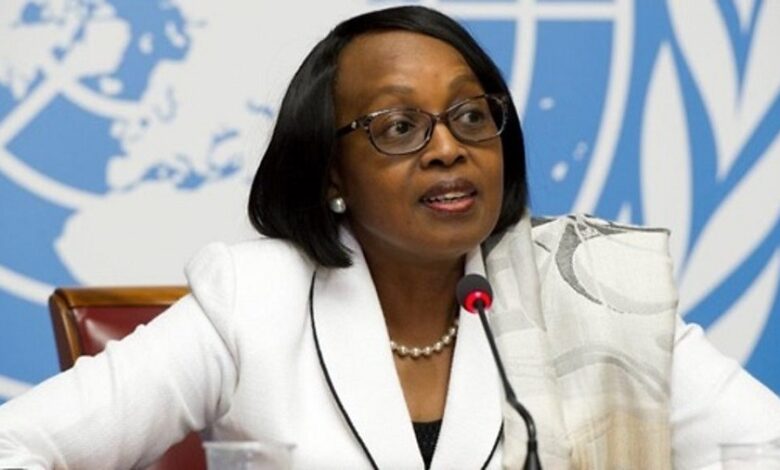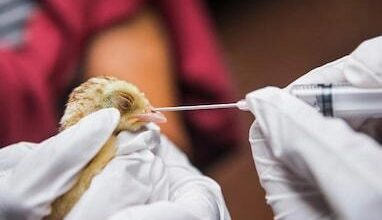Africa advances HIV fight: 7 nations meet UNAIDS targets, 21.3m on treatment – WHO Regional Director

The African region has emerged as a global leader in advancing the 95-95-95 UNAIDS HIV targets, according to the World Health Organization (WHO) Regional Director for Africa, Dr. Matshidiso Rebecca Moeti.
In a statement on Friday, to mark World AIDS Day 2024, Dr. Moeti highlighted the significant strides made in testing, treatment, and viral suppression across the continent.
Dr. Moeti revealed that seven African countries have already achieved the 95-95-95 targets, which aim to ensure 95% of people living with HIV are diagnosed, 95% of those diagnosed are on treatment, and 95% of those on treatment achieve viral suppression.
“The region’s overall rating currently stands at 90-82-76, underscoring its impressive progress in bridging treatment gaps and improving health outcomes.”
According to the regional director, about 21.3 million people are now on antiretroviral treatment, raising their life expectancy.
Despite having the highest HIV burden globally, and comparatively fewer resources to fight the epidemic, African countries have made significant progress. Dr. Moeti noted that the change in the trajectory of the epidemic over the past decade is evidence of the notable successes in HIV control and response.
She explained that HIV is a complex health challenge, inseparable from social determinants such as poverty, gender inequality and violence, and complicated by stigma and discrimination, especially amongst marginalized populations.
“Protecting human rights is a key component of achieving universal HIV care and breaking down these life-threatening barriers to access.”
“As we come together with the international community to mark World AIDS Day 2024 on 1 December, this year’s theme, “Take the rights path: My health, my right!” is a timely reminder of our responsibility to safeguard human rights as we pursue the goal of HIV elimination by 2030,” Dr. Moeti noted.
She emphasized that World AIDS Day also provides an opportunity for reflection on the achievements.
Botswana and Namibia recognized for maternal HIV transmission control
Dr. Moeti highlighted Botswana and Namibia’s remarkable achievements in curbing mother-to-child HIV transmission rates. Botswana has earned a silver-tier status, while Namibia holds a bronze-tier status for achieving the required indicators of the “Path to elimination of HIV” criteria introduced in 2017.
Expanding access to biomedical prevention methods
The African Region is also implementing effective biomedical HIV prevention methods. With countries quickly adopting and implementing pre-exposure prophylaxis (PrEP) recommendations and ensuring increased access to options such as oral and long-acting injectable PrEP, and the dipivefrine vaginal ring.
Dr. Moeti lauded these advancements but stressed the need to ensure universal accessibility to maximize their impact.
“Despite the increased availability of scientific knowledge and tools for preventing new HIV infections, and effectively treating people living with HIV, the value of these innovations depends on their universal accessibility,” she said.
“This is an issue that requires further investments and policy reforms going forward.”
The need to tackle stigma and discrimination
Dr. Moeti emphasized the collective obligation to protect human rights, specifically ensuring that health care is available to everyone, without any discrimination, regardless of their HIV status, background, gender or where they live.
“Stigma and discrimination cannot be allowed to undermine the gains and impede our progress, “she cautioned.
She also emphasized that it is indeed possible to eliminate HIV with the combined efforts of governments, partners, health care providers, civil society and, crucially, communities.
“Communities are key partners in co-creating strategies and jointly implementing interventions to address human rights-related barriers to care, and we must ensure their voices are heard,” she added.
Strengthening health systems amid challenges
The HIV response in Africa faces challenges from recurring disease outbreaks that strain already fragile health systems.
Dr. Moeti emphasized the importance of strong, integrated, and person-centred healthcare approaches to meet the needs of vulnerable populations optimally.
The HIV response is complicated by the ncreasing incidence of disease outbreaks in the African region, which negatively impact our already struggling health systems.
Dr. Moeti stressed “As we accelerate our response to the epidemic, it is important that we remain mindful that strong health systems and integrated, person-centred approaches to health care are essential to optimally meet the multiple needs of our vulnerable populations,” she said.
Renewing the commitment to an AIDS-free generation
Reflecting on the achievements and ongoing challenges, Dr. Moeti called for a renewed commitment to eliminating HIV. “By protecting everyone’s right to health and reducing new HIV infections, we can achieve an AIDS-free generation and ensure the sustainability of the HIV response.”
As the global community pushes towards the goal of HIV elimination by 2030, Dr. Moeti reaffirmed the importance of collective efforts from governments, civil society, healthcare providers, and communities.
She urged that all stakeholders uphold the rights of individuals living with or at risk of HIV and ensure equitable access to care.
“Let us use this World AIDS Day to reflect on our progress, address the gaps, and commit to ending AIDS as a public health threat,” she concluded.






